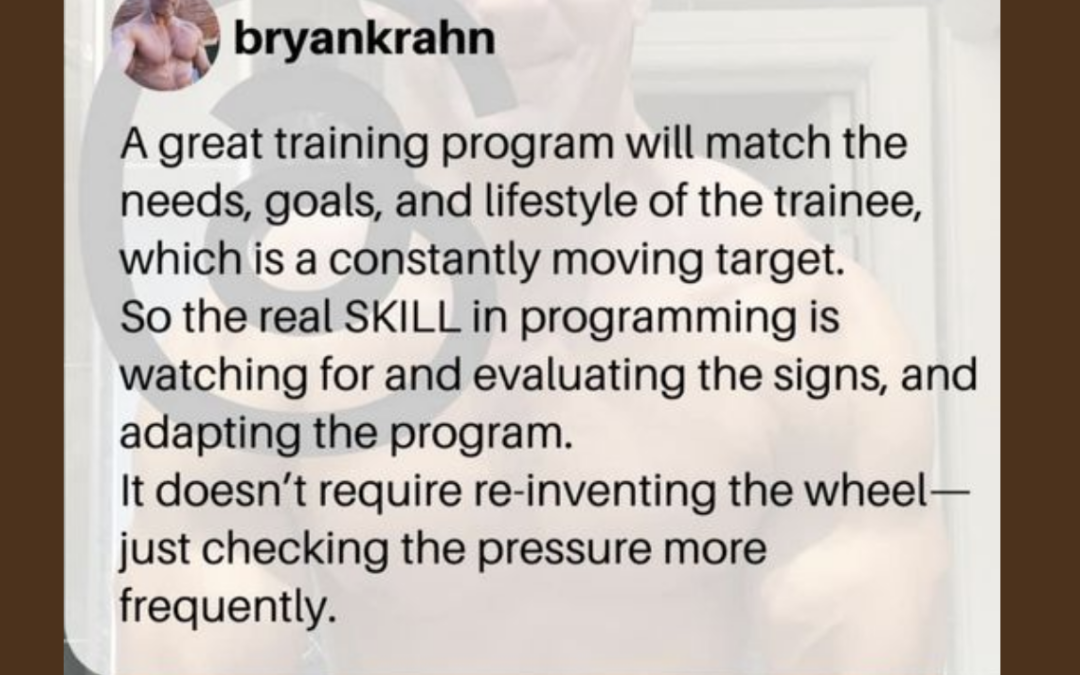Examples of great training programs can be found anywhere. But a program is only great if it matches the needs, goals, and lifestyle of the trainee, and that’s a constantly moving target.
Sounds complicated? Not at all.
A while back, my friend and nutrition expert, @drjohnberardi (JB), hired me to handle his programming.
I knew before putting pencil to paper (I’m old school) that it was going to be a challenge. Not because JB isn’t capable—he was an excellent bodybuilder and still in great shape—but he does have 4 busy kids.
So training would need to be fast, efficient, and flexible.
But that doesn’t require re-inventing the wheel—just checking the pressure more frequently.
Anyway, we followed a basic weekly progression on the bigger lifts with a plan to repeat them in weeks 4-6, just with heavier loads.
All standard stuff.
However, after week 3, John was WIPED.
He was having trouble sleeping, brain fog was setting in, and he was constantly hungry.
(Not entirely unexpected—there’s simply less “oil in the lamp” after 40.)
To course correct, we cut the volume by 1/3 while keeping intensity unchanged. This got things back on track.
But a month or so later, he was experiencing a different kind of fatigue—that nagging feeling of excess “wear and tear”— even after tweaking various exercises.
This meant more significant changes to the plan were warranted (hence using a pencil to program and not a pen), so we wrapped up the training phase early and slid into two weeks of “recovery”— pulling back on weight training in favor of cardio and matching the seasonal summer activities.
After a couple of weeks, we again ramped up the training schedule.
Now, if you’re sitting there saying to yourself, “That was all pretty straightforward,” good.
PROGRAMMING SHOULD ALWAYS BE AS SIMPLE AND EFFECTIVE AS POSSIBLE.
The real SKILL here is watching for and evaluating the signs, and adapting the program to the individual’s changing needs.
‘Cause all too often, we try to play the role of “puppet master” when it is really RECOVERY pulling the strings.
Never confuse complexity with optimal.
It’s often your clearest sign that something needs to change.
– Coach Bryan

